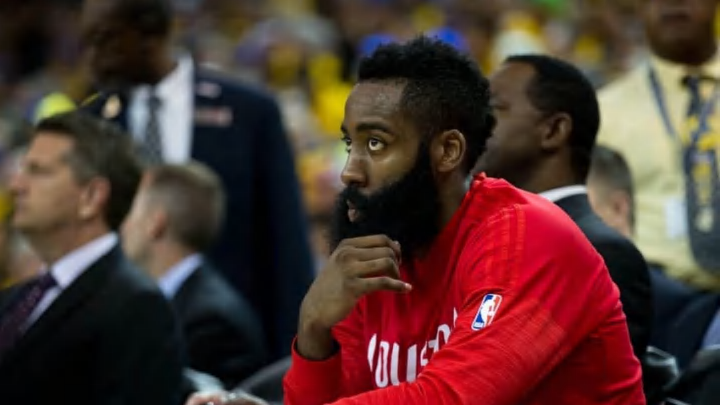We are still weeks away from the beginning of the NBA season but the challenge for the Houston Rockets is clear — figuring out how to stop the other team from scoring.
Last season, the Rockets allowed 108.1 points per 100 possessions. That mark was 21st in the league, about 1.7 points per 100 possessions worse than the league average. By Box Plus-Minus (BPM), a box score based estimate of a player’s impact per 100 possessions, the Rockets had three above average defenders in their regular rotation — Dwight Howard, Clint Capela, and Trevor Ariza. Howard is now a member of the Atlanta Hawks and Houston’s two major offseason additions — Eric Gordon and Ryan Anderson — were both estimated by BPM to be among the 40-worst defenders in the league last season.
Houston’s star, James Harden, regressed significantly on defense last season and pretty bad to begin with. To top it all off, the Rockets hired Mike D’Antoni as their new head coach. There has been a small amount of revisionism concerning D’Antoni’s history, as it has been pointed out that the defensive reputation of his Phoenix Suns was savaged by their points allowed per game numbers, which were dramatically inflated by the team’s pace. While his Phoenix teams were closer to average by defensive efficiency, D’Antoni still rates out as one of the worst defensive coaches in history if you include his New York Knicks and Los Angeles Lakers teams.
It seems like all the ingredients are in play for the Rockets to be a very bad defensive team this season, potentially bordering on the historic.
More from Nylon Calculus
- Nylon Calculus: Reviewing preseason predictions for the Western Conference
- Nylon Calculus: Reviewing preseason predictions for the Eastern Conference
- Nylon Calculus: LeBron James and the slam dunk aging curve
- The Whiteboard: Why has the NBA seen so many 50 point games this season?
- Nylon Calculus: 15 early season predictions for the NBA Western Conference
The cupboard is not completely bare for the Rockets. As mentioned above, both Capela and Ariza were above estimated as above average defenders last season. Houston also added Nene this summer, a veteran big with a strong defensive reputation and they still have Patrick Beverley. But in the end, the challenge for the Rockets may be more about system than about personnel.
A defense can fail in a variety of ways and the Rockets certainly illustrated that last season. Although they forced plenty of turnovers, they finished 23rd in opponent effective field goal percentage, 22nd in opponent free throw rate, and dead last in defensive rebound percentage. Of those three, limiting an opponent’s effective field goal percentage is the most important in terms of overall defensive efficiency.
The offensive style the Rockets play, an uptempo style that may theoretically be pushed faster with D’Antoni at the helm, presents inherent defensive challenges. The Golden State Warriors illustrated last season that is possible to simultaneously reach the extremes of uptempo offense and elite defense. However, they are an absurd outlier in that regard and the formula they have found is not easily replicable without their personnel. Looking at the rest of the league, there is an established relationship between offensive and defensive transition percentage — that is to say teams that score a lot of easy baskets in transition also usually give up a lot of easy baskets in transition.
There is also the issue of floor balance and the fact that teams that attack the rim more often (as Houston does), in general, are prone to giving up more transition baskets. These elements that are baked into Houston’s offense — attack the rim, push the pace — can give up a lot of high-quality scoring opportunities for their opponents and thus make it difficult to limit an opponent’s effective field goal percentage.
This issue can bleed into defensive rebounding as well. Houston finished last in the league in defensive rebound percentage last season, and first in the league in the percentage of their offensive possessions that came in transition. The Rockets were quite a bit worse on the defensive glass than would have been expected given their transition percentage, but there is still a fairly clear trend.

None of this is inescapable. The Washington Wizards pushed the pace relentlessly last year and were still very good on the defensive glass. Both the Warriors and the Celtics finished in the top-six in both pace and overall defensive efficiency last season. It can be done. The questions for Houston are: How much are the Rockets willing to tweak their offensive style to maintain defensive integrity and what are they able to accomplish with a less-than-ideal defensive roster?
Or, maybe they can just win 55 games outscoring opponents 137-131…
